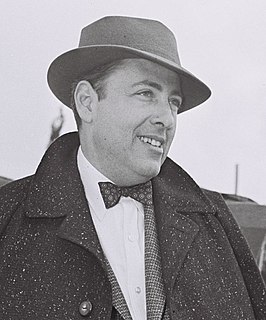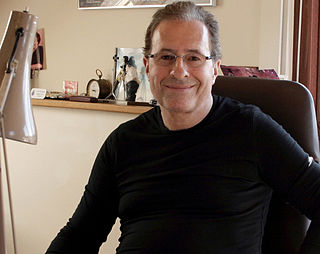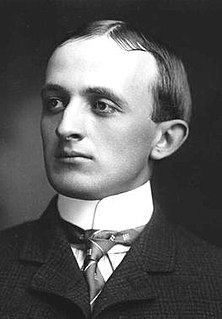A Quote by Gautama Buddha
He who lives with his senses well controlled, moderate in his food and drink, he will not be overthrown, any more than the wind throws down a rocky mountain.
Related Quotes
The Tempter masters the lazy and irresolute man who dwells on the attractive side of things, ungoverned in his senses, and unrestrained in his food, like the wind overcomes a rotten tree. But the Tempter cannot master a man who dwells on the distasteful side of things, self-controlled in his senses, moderate in eating, resolute and full of faith, like the wind cannot move a mountain crag.
Heroism' often consists in keeping your head in an emergency and doing the best you can with what you have instead of panicking and being shot in the tail. People who fight this way win more battles than do intentional heroes; a glory hound often throws away the lives of his mates as well as his own.
Why all this insistence on the senses? Because in order to convince your reader that he is THERE, you must assault each of his senses, in turn, with color, sound, taste, and texture. If your reader feels the sun on his flesh, the wind fluttering his shirt sleeves, half your fight is won. The most improbable tales can be made believable, if your reader, through his senses, feels certain that he stands at the middle of events. He cannot refuse, then, to participate. The logic of events always gives way to the logic of the senses.
Since so many people these days don't seem to start their families until around age forty, I predict there will be less child beating, but more slipped disks from lifting babies out of cribs. Even the father of advanced age who's not inclined to spare the rod is likely to suffer more than his victim: The first punch he throws might well be the last straw for his rotator cuff, reducing his disciplinary options to mere verbal abuse and napping.
Let us fill a cup and drink to that most noble, ridiculous, laughable, sublime figure in our lives... The Young Man Who Was. Let us drink to his dreams, for they were rainbow-colored; to his appetites, for they were strong; to his blunders, for they were huge; to his pains for they were sharp; to his time for it was brief; and to his end, for it was to become one of us.
Branches grew from his hands, his hair. His thoughts tangled like roots in the ground. He strained upward. Pitch ran like tears down his back. His name formed his core; ring upon ring of silence built around it. His face rose high above the forests. Gripped to earth, bending to the wind's fury, he disappeared within himself, behind the hard, wind-scrolled shield of his experiences.
Branson ate his salad, and left the rest of his fish untouched, while Grace tucked into his steak and kidney pudding with relish. 'I read a while ago,' he told Branson, 'that the French drink more red wine than the English but live longer. The Japanese eat more fish than the English but drink less wine and live longer. The Germans eat more red meat than the English, and drink more beer and they live longer too. You know the moral of this story? 'No' 'It's not what you eat or drink - it's speaking English that kills you.
Socrates was the chief saint of the Stoics throughout their history ; his attitude at the time of his trial, his refusal to escape, his calmness in the face of death , and his contention that the perpetrator of injustice injures himself more than his victim, all fitted in perfectly with Stoic teaching. So did his indifference to heat and cold, his plainness in matters of food and dress, and his complete independence of all bodily comforts.






























